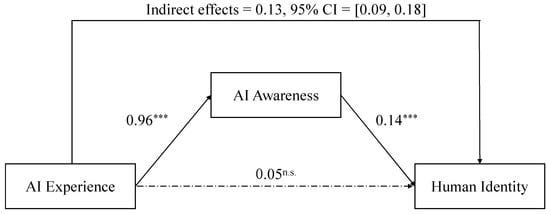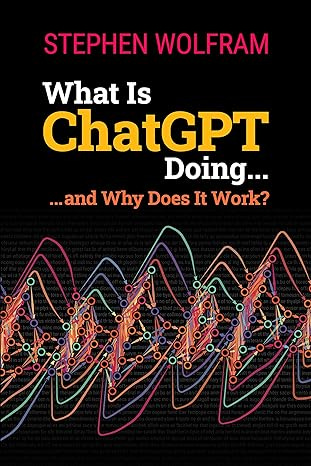The Intelligent Friend - The newsletter about the AI-humans relationships, based only on scientific papers.
As you heard yesterday, this is the first issue of the Intelligent Friend’s Nucleus (sometimes I will use IFN), the new premium weekly issue of my publication (every Wednesday). I am thrilled, excited and curious to get started and hear your opinions (if you missed what it's about, you can read about it here!). Let's dive headlong into the papers and other juicy stuff today. And if you decide to subscribe, apart from all the next issues of the IFN, you will already be part of the exclusive Intelligent Friend’s 'Society' (sometimes I will use IFS) where you can interact, exchange views and talk about your projects. Enjoy the read!
P.S. A few 'stylistic' and 'technical' notes before starting this format: 1) to illustrate the articles, I will often use gifs or images from movies, charts from studies, even AI generated ones, to give variety to the design;
2) I will always try to choose very recent papers (2022-2024), but in the case of something particularly interesting, I will still bring it in despite a more distant date;
3) All papers are personally selected. As I said, you could of course ask ChatGPT or other tools (Scholarcy and many others) for summaries of some papers on a topic, but the beauty is in the discovery and periodic reading of something new and carefully selected for you;
4) I write this section also because I think that too many papers are published that we are often not aware of. I strongly believe in knowledge sharing, and it is also a way to share the work of many scientists (in my very small contribution). Well, it’s time to enjoy!
AI vs human persuasiveness
One of the distinctive abilities of humans is to persuade. Of course, animals can be 'persuasive', but not persuasive in the sense we understand. We can modulate the tone, understand a person's weak points, adapt behavior. But what about machines? AI is evolving in a direction of possible persuasion. Not only that: it will be capable of more effective persuasion.
In this paper, the authors identify 4 key areas in which AI "will shift persuasive power towards those who are most able to effectively utilize AI-enabled technology": money, regulatory barriers, data, and AI expertise itself. But scholars do not limit themselves to this: they also try to understand what distinguishes AI from humans in their persuasive activities. It seems obvious, but, for example, AI does not get tired. At the same time, it is well known that persuasion occurs not only with words, but also with gestures. Here, machines are severely limited. In this paper, you will discover much more than you think on the subject, and what the possible futures are.
Title: Artificial Influence: An Analysis Of AI-Driven Persuasion. Author: Bartel & Woodside. Year: 2023. Journal: / (working paper). Link.
Does AI really make us feel more human? Answer: Yes.
It is often thought that pitting oneself against machines can lead humans to feel more 'united', as if challenging two separate groups. Indeed, a paper by Wang and Peng (2023) provides evidence on the relationship between 'human identity' and experience with AI, regardless of factors such as level of education, age or gender (and others). Human identity literally means "seeing oneself as a member of the entire human race". In essence, it is shown that human beings move more from feeling a 'they' when they talk about other people, to a 'we' when they come into contact with AI. This behaviour is precisely due to AI awareness.
Title: AI Experience Predicts Identification with Humankind. Author: Wang & Peng. Year: 2023. Journal: Behavioral Science. Link.
Who does ChatGPT vote?
ChatGPT, like all other GenAI models, suffers from certain biases. However, when it comes to politics, what is ChatGPT's opinion? Does it really have an opinion? Apparently, the paper by Hartmann, Schwenzow and Witte seems to give an answer: ChatGPT seems to have a proenvironmental, left-liberatrian orientation. The result was obtained by prompting 630 political statements from two leading voting advice applications and the nation-agnostic political compass test in three pre-registered experiments.
In essence, this chatbot would vote for the Greens, or the Social democrats. Analyzing how ChatGPT justifies its questions, it emerges that it seldom speaks in the first person, and that it express a low political rhetoric as well as based emotionality in its answers. Want to experiment in the first person? I tried to redo some questions, but did not get convincing answers (the study was done at the end of 2022). If you have particular results, please comment!
Title: The political ideology of conversational AI: Converging evidence on ChatGPT's pro-environmental, left-libertarian orientation. Author: Hartmann et al. Year: 2023. Journal: / (working paper). Link.
Habitat 3.0
The paper is about Habitat 3.0: a simulation environment to study the interaction between robots and humans in home contexts. This platform introduces advances in three key areas: (1) enhanced humanoid simulation, (2) human interaction framework (human-virtual robots interaction), (3) cooperative task analysis. For the latter, two types of activities are analyzed: social navigation, that focuses on the robotic ability to identify and follow humanoid avatars in new environments; social reorganization, which involves joint efforts by humans and robots to change the layout of an environment.
The authors noted co-operative behavior in trained policies, including the safe pursuit of humanoids and the improvement of efficiency through the division of labour. Watching the video, I was really surprised and genuinely curious about the functioning of this simulated environment and how the mutual support between robots and humans took place. Below you can find the link to the video. I am becoming increasingly fascinated by developments in robotics, and should I find any new papers in the relational profile, they will certainly be among those you will find in future issues.
Title: HABITAT 3.0: A CO-HABITAT FOR HUMANS, AVATARS AND ROBOTS. Author: Puig et al. Year: 2023. Journal: / working paper. Link (video here).
The author’s opinion
For this week, being the first issue, I could not get an opinion from the authors. However, I have decided on this practice: when I fail to get them, to make it "up to me", I will share with you a reading suggestion (unrelated to AI) that I found particularly interesting. In this first issue I bring you a paper reading (but the next one could be a magazine article, a newspaper, or a newsletter) about the acceptance of AI in science teaching and a piece from The Atlantic on "Nostalgia for a Dating Experience They've Never Had". I always enjoy getting inspiration from different topics and perspectives. I hope you appreciate these personal recommendations.
The tool of the week
Thanks to the
‘s suggestion in one of his issues, I have to mention how impressed I was by Brickit. I have to tell you the truth, I am not a Lego usual player, but this tool made me want to start building! What does it do? By scanning the available pieces, it suggests creations that we could hardly think of on our own.The publication of the week
As you can read from my profile, I am subscribed to more than 70 newsletters. I read a lot and find what so many creators do very interesting. That is why, every week, I will dedicate a space to one of the publications I find interesting, or pieces I have read during the week.
This week, I have chosen to repost a piece written by
in Stat Significant. I am very sensitive to the subject of music: when I work or write, I always listen to the same two newsletters, one more rock, one jazz (guess which one for which task). Reading this piece made me curious and impersonated. Enjoy it as much as I did.
What from the Society
This section will be present in the free issues of The Intelligent Friend, and will take up the weekly key discussion points of 'Society'. For example, has there been a debate on a particular topic? Did two people talk about a project? Did someone share an article or look for its next co-author? It will be a way for as many people as possible to take a peek and maybe get to know about projects and opportunities of paid subscribers.
So, as soon as the Society sees the intriguing debates, it will fill up! Remember: only 5 USD, to be able to have access to the exclusive chat and re-watch the Nucleus every week. Do you like this offer? Subscribe now for one month!
The book of the week
This week I want to bring you a unique book by a great mind and great explanatory skills: What Is ChatGPT Doing... And Why Does It Work? A book by Stephen Wolfram to understand the "machine mind" that is really interesting even for those with a background on the subject, to be inspired on how to talk about these things in an even more fascinating way.
Other things that will make you cooler at dinner
💸 Ever thought of donating something to charity? Here's what you should consider.
🎈Are you the same person you were when you were a child?
😂 Do you hate fake laughter in TV shows? You are not the only one.
This was the first issue of the new paid section of The Intelligent Friend, the Nucleus (IFN). Every week, in addition to the free issue, you receive a personally edited summary of 4 papers and many other interesting things. In addition, you get access to the IF Society, an exclusive chat where you can exchange opinions, links, and talk about your projects or other intriguing things. How much does it cost? 5 USD per month. All inclusive. Less than 20 cents a day. And you can even make a good impression at dinner with friends!
P.S. I am also thinking about the possibility of making this issue 'thematic', with four papers each from a specific field. Let me know in the comments what you think!
Thank you for reading this issue of The Intelligent Friend and/or for subscribing. The relationships between humans and AI are a crucial topic and I am glad to be able to talk about it having you as a reader.
P.S. If you haven't already done so, in this questionnaire you can tell me a little about yourself and the wonderful things you do!













Congrats on officially kicking off "The Nucleus" series, Riccardo. And thank you for the shoutout! Tried "Brickit" with our kids the other day and it was a success!